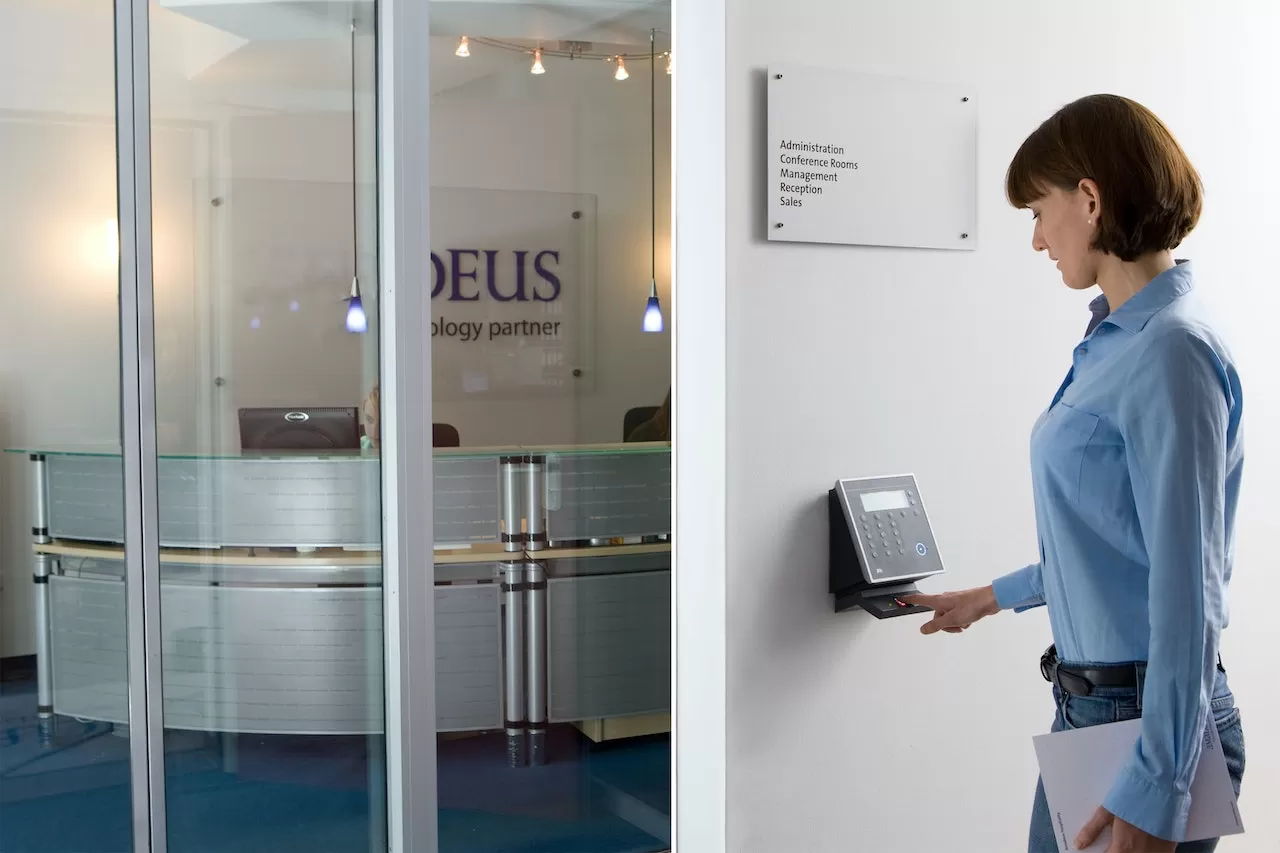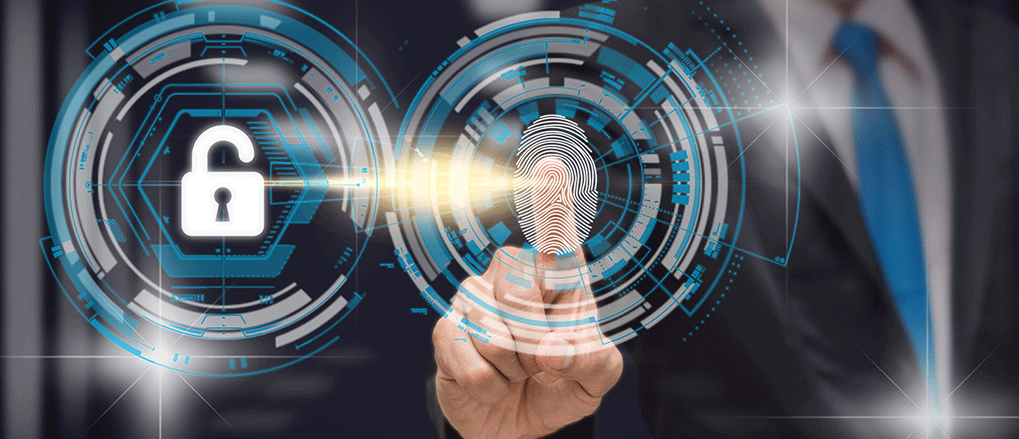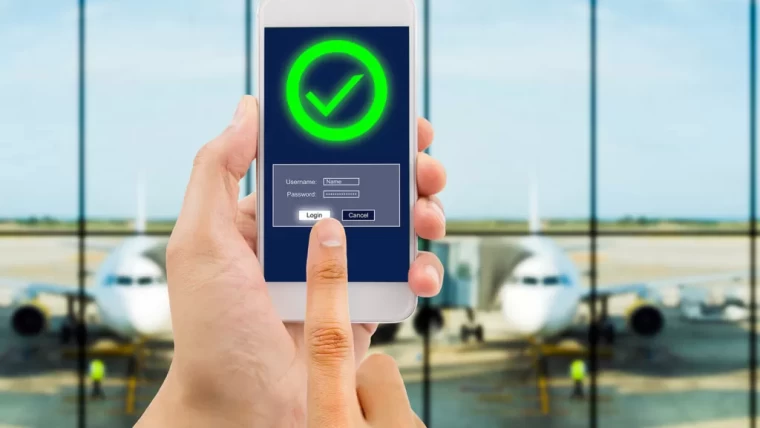Not long ago, biometric door locks were found only in places like high-security government buildings and corporate sites with important security concerns. In a short time, biometric door locks have become available and accessible to almost anyone. Biometric door locks do more than just provide the highest security possible they also simplify your access control.
Biometric door locks, quite simply, use advanced technology that can scan physical features of the human body and translate these scans into usable data. This data can be used to verify individuals who are designated to have access to a building.
One of the most obvious advantages of biometric door locks is that they eliminate the need for old-fashioned locks and keys, and they eliminate the need for things like access codes and scannable ID cards. Biometric door locks are both secure and convenient.
What are biometric door locks? How do biometric door locks work? And what are the different types of biometric door locks? This guide will introduce you to biometric door locks.
What are biometric door locks?

Biometric door locks are security access systems that use the physical features of human users to generate access points for doors and other access points. Using what is called biometric technology, biometric door locks provide maximum security while they also eliminate the need for locks and keys, access codes, key cards, and key fobs.
Biometric technology is able to scan things like fingerprints and the iris of the human eye to generate a completely unique set of digital data. This data can then be configured into an access control system that will scan individual users to make sure their unique physical characteristics match the digital data that is stored in the system.
One of the many benefits of biometric door locks is that the singular digital data generated from individual users cannot be duplicated or transferred to another person. There is almost no way to defraud the system to provide access for anyone but authorized users.
Biometric locks for doors take the form of:
- Fingerprint scanners
- Facial scanners
- Iris scanners
- Voice recognition software.
How do biometric door locks work?
Biometric door locks work by first scanning a user’s fingerprint, face, eye, or voice. The scan is converted into a digital set of data that is configured into the security and lock system to match a designated user.
Biometric locks can store an authorized user’s credentials for use within the entire security system. This means the scan and biometric data will work with any access point on the site or building. This is especially useful for commercial properties.
Many biometric door lock systems also use a PIN pad so users can enter a PIN in the event of a system error.
How secure are biometric door locks?
Biometric door locks are perhaps the most secure form of door access control. Fingerprints and other forms of biometric data simply cannot be duplicated or forged. This means the only person who can activate the biometric door lock system is the authorized user of that system.
Biometric door locks do away with all other modes of access. There are no keys, cards, fobs, or any other materials that can be lost, stolen, misplaced, or given away. This means there is no way for anyone to forge or duplicate access to the system.
Biometric door locks Benefits
Now that biometric door locks are widely available, many people have begun switching their access systems to this technology. The reasons for this are many. The benefits of biometric door locks include:
Maximum control over access
Biometric door lock systems can store data for multiple users. You can grant or revoke access to nearly as many users as you like. This is ideal for businesses that need to keep tight control over who can enter and leave the premises. You can even grant temporary access with biometric door lock systems, which afford you the ability to grant access for a set period of time. Biometric door locks can be configured to allow different levels of access. For example, you may want to grant access to the main parts of a building to everyone but only allow specific people to have access to certain areas.
Unparalleled security
There have always been two main problems with conventional door locks. The first is that there is always a way to get through the lock no matter how strong it is. The second is the problem of lost keys and other forms of access control. Biometric door locks eliminate both of these problems. There is simply no way to open a biometric lock without the correct biometric data or with an authorized administrator’s override. Second, there is no way to duplicate biometric data. Physiological human traits are singular, and there is no way to duplicate or forge this data. The only person who can access the lock system is the person who has the biometric imprint that matches the biometric data.
Tamper proof
Biometric door locks use things like high-grade steel that is nearly impenetrable. This means the lock and all the mechanisms within the lock are virtually tamper-proof. There is no way to “pick” biometric locks because there is no visible mechanism to access them. There is an electronic scanner/reader and the internal mechanisms of the lock.
Automatically locks after use
Biometric door locks close automatically after you enter or leave the building. This is convenient and safe. Unlike things like hatch locks, there is no way to lock the key in the building behind you since you take the biometric data with you. By automatically locking, you ensure that users cannot inadvertently leave the door unlocked.
Saves you money
While the initial investment in a biometric door lock system can be higher than in conventional lock systems, the long-term benefit of biometric door locks is that they can save you money. These systems eliminate the need for keys that can be lost, and which wear out. The locking systems are extremely durable and hold up to extreme weather, this saves on maintenance costs. And the process of granting access to the biometric lock system is minimal compared with issuing keys, cards, and key fobs.
Types of biometric door locks

Biometrics is a broad category that includes many specific types of systems. The types of biometric door locks commonly in use include:
Fingerprint door lock
Fingerprint door locks operate with a scan of a human fingerprint. As we know, fingerprints are unique identifying features which is why they have been used in law enforcement for decades. These types of biometric door locks use a scanner on the locking mechanism that will read a user’s fingerprint to verify access.
Facial recognition door lock
Facial recognition biometric technology is newer. It is far more sophisticated and therefore more expensive than other types of biometric technology. Facial recognition systems will do a full scan of a person’s face, and the lock system will have a scanning mechanism to verify access for authorized users.
Retinal scan lock
Retinal scans are also more sophisticated than fingerprint scanners for instance. This technology can scan the singular and unique features of a human eye to map the retina of the eye. Each human eye has a unique pattern within the retina that can be digitally mapped and converted into digital data. Scanners at points of entry will scan users’ eyes to determine their authorization for entry.
Iris scan lock
Iris scan locks are similar to retina scans. Just like the retina of the eye, the iris of the human eye is also a unique feature of everyone. No one possesses exactly the same arrangement in their iris. These systems also convert a digital scan of the iris into digital data which can be matched at points of entry to validate authorized users.
Voice recognition
The unique sound wave pattern of the human voice can also be used as biometric data. Many people used voice recognition with their own personal computers to secure their personal data. Many smartphones are also equipped with voice recognition technology. This same biometric technology is used in activating door lock systems.
Best biometric door locks 2023
Biometric door locks are becoming increasingly available to almost anyone. Once the sole prerogative of government offices and corporations with large security budgets, biometric door locks are now within reach for small businesses and homeowners. Some of the best biometric door locks for 2023 include:
Catchface Fingerprint Door Lock
This is a keyless smart door lock that uses fingerprint biometrics. It includes apps to operate the system remotely. Catchface’s Fingerprint door lock can be installed in common doors and other entry points. It is used in the Airbnb industry and even by homeowners. Catchface’s Fingerprint door lock comes with a built-in low battery warning and a backup key option.
Geek Smart Fingerprint Door Lock
Geek Smart’s Fingerprint Door Lock uses state-of-the-art biometric technology to secure keyless entry to homes, offices, rentals, and hotels. It relies on fingerprint biometrics, and it uses a voice prompter to configure the system. It can hold up to 20 fingerprints which makes it ideal for small businesses and homeowners. What is more, Geek Smart’s Fingerprint Door Lock is built into a traditional handlebar door handle design. It can be installed in windows and closet doors.
Smonet Biometric Door Lock
Smonet’s Biometric Door Lock stands out because it comes with a white LED touch screen. This system also uses fingerprint biometrics. It automatically locks the door behind you after you enter. The Smonet system comes equipped with a keypad as a backup, and it will automatically lock out anyone who enters the wrong key code more than five times. Smonet’s Biometric Door Lock uses a strong deadbolt for maximum security. The system can hold up to 100 different fingerprints.
Biometric door locks FAQS
What are biometric door locks?
Biometric door locks are security access systems that use the physical features of human users to generate access points for doors and other access points. Using what is called biometric technology, biometric door locks provide maximum security while they also eliminate the need for locks and keys, access codes, key cards, and key fobs.
How do biometric door locks work?
Biometric door locks work by first scanning a user’s fingerprint, face, eye, or voice. The scan is converted into a digital set of data that is configured into the security and lock system to match a designated user.
What are the benefits of biometric door locks?
Biometric door locks provide maximum access control, the highest security possible, and they are easier to use than other door lock systems.
The technology of biometric door locks has progressed to the point that these systems are available to small businesses and homeowners. However, installation of biometric door locks requires the help of qualified and licensed professionals To get started with biometric door locks for your business or home, Circle Security Solutions provides products and services that can meet your security needs.
Circle Security Solutions provides the best service and products for biometric door locks and access control systems for commercial properties. In addition to fire alarm systems, Circle Security Solutions offers informative security & fire alarm systems, 24/7 central station monitoring, HD video surveillance cameras & HD digital video recorders, and home control & automation systems for your South Florida home or business. With locations in Miami and Boca Raton, we proudly and regularly service Palm Beach County, Broward County, and Miami-Dade Counties.
Wrapping things up
Door access control and door locks for commercial properties and for homeowners have long been a primary concern. For many years, nearly everyone had to rely on locks and keys. Even with the advancement in access code door locks and things like key fobs, many of the same problems remained since these systems can still be compromised.
Biometric door locks solve many of the issues with more conventional door lock systems. Biometric technology relies on the singular and unique features of individuals to provide access to properties. These systems scan fingerprints and parts of the eye, for example, to generate digital data and then be used for door access. Users simply scan their fingerprints or eyes to gain entry.
With biometric door locks, there are no keys or cards to get lost. There is no way to duplicate biometric data, and these systems are easy to use. Biometric door locks, quite simply, provide the highest levels of security and the greatest ease of use. To get started with biometric door locks for your home or business, consult Circle Security Solutions to have a biometric door lock system installed.



